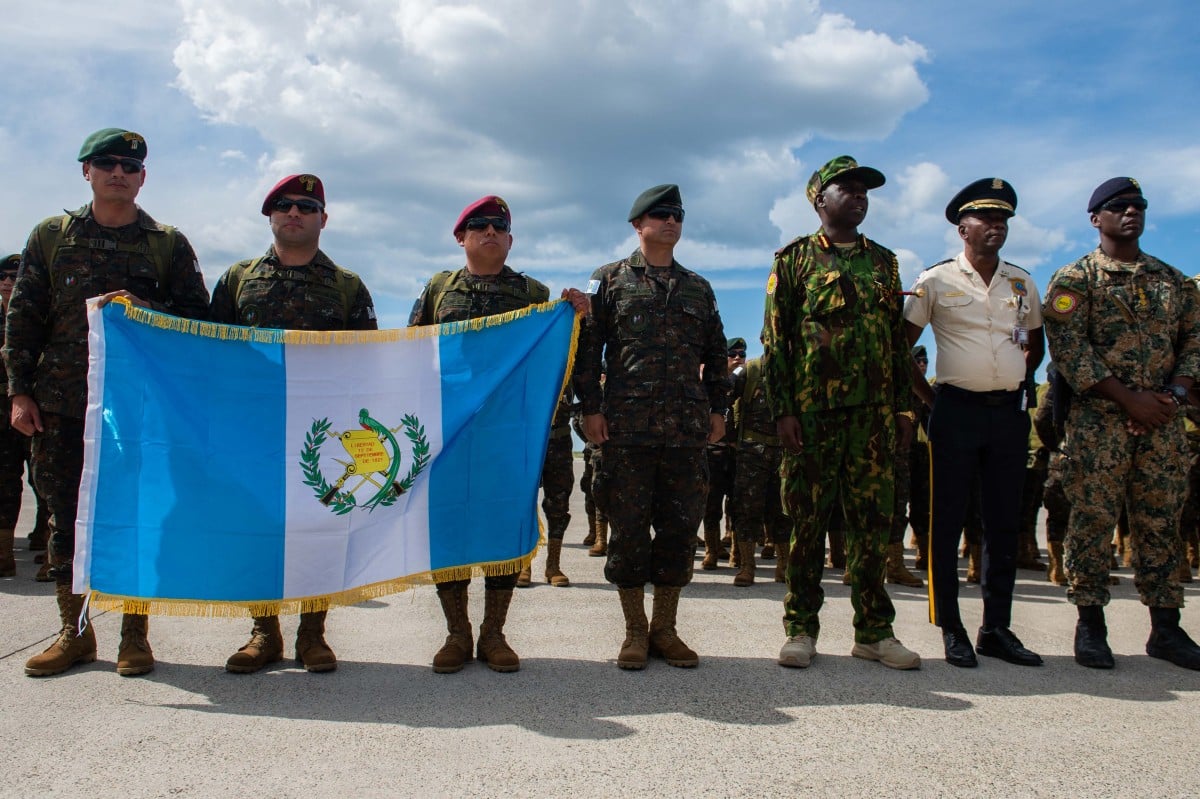
77 officers in the second, and final, group of Guatemalan security forces sent to Haiti arrive on the tarmac of Toussaint Louverture airport in Port-au-Prince, Haiti, on January 4, 2025. Agence France-Presse
PORT-AU-PRINCE — More than 75 Guatemalan soldiers arrived in Port-au-Prince on Saturday to help Haiti’s overwhelmed police force curb gang violence, one day after a first contingent, bringing their number to more than 150, AFP journalists observed.
The Latin American troops join the Kenyan-led multinational force that began deploying last June. So far, there are 400 officers — most of them Kenyan, but also some from Jamaica, Belize and El Salvador — on site, out of an expected 2,500.
The force is under-equipped as it attempts to stamp out Haiti’s powerful, well-armed gangs, who have been accused of murder, rape, and kidnappings for ransom.
READ: Haiti gang leader vows to fight any foreign armed force if it commits abuses
The United Nations estimates that the gangs control about 85 percent of the capital Port-au-Prince, and gang violence has not abated in the crisis-wracked Caribbean country since the multinational force arrived.
Attacks by armed groups have been escalating in multiple areas of the capital for more than a month.
Two journalists and a policeman were killed at the December 24 reopening of a hospital in Port-au-Prince in a gang attack.
In early December, more than 200 people were killed after an apparent order by a gang leader to target voodoo practitioners, according to the United Nations.
READ: International force making ‘significant progress’ in Haiti – Kenya
The month before, gunfire prompted the closing of the airport in the capital to commercial traffic.
Authorities in Haiti’s transitional government have called on the UN to transform the Kenyan-led force into a full-fledged peacekeeping mission.
The request, conveyed by the United States, has run into opposition from China and Russia, which have veto power in the UN Security Council.